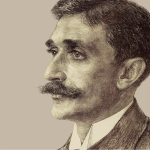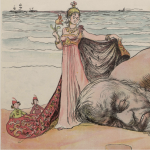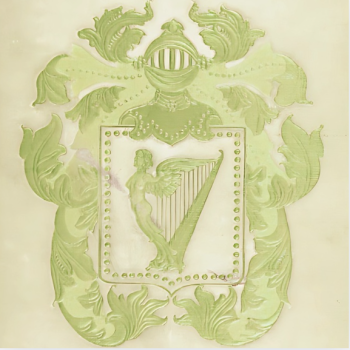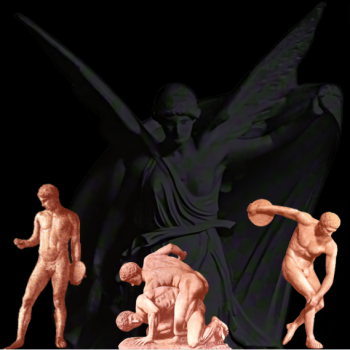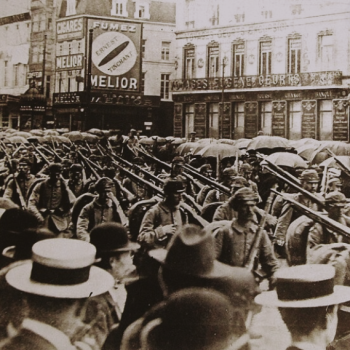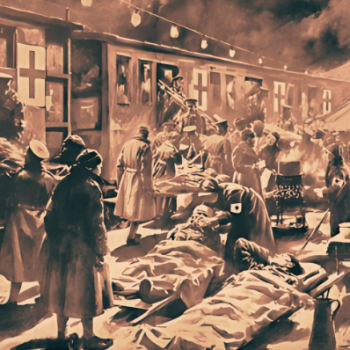Ernest Temple Hargrove.
The history of South Africa is known, roughly, to most people. It does not provide agreeable reading for those who would like to believe that Great Britain is an exception to the rule, and that she, alone among nations, can do no wrong. “Truth is the strong thing,” however, and it is best in any case to tell the truth no matter what inferences we may see fit to draw from it; so in this case it will be best at once to recognize that no one defends the part Great Britain played in her early dealings with the Boers.
The Cape of Good Hope was discovered by the Portuguese. It was colonized by the Dutch in 1652, and later by a number of French Huguenots who had fled from France to Holland after the revocation of the Edict of Nantes. The Dutch held possession until 1795, when, during the Napoleonic Wars, it was captured by the British. On the conclusion of peace in 1802, it was restored to Holland. In 1806 it was again captured by Great Britain, and in 1814 it was finally ceded by William of Orange, in part payment of a debt incurred by him during his exile in England. This was done without the consent of the people who had made the Cape their home, though in fairness to William of Orange it should be said that he had no choice in the matter.
This transference of the Cape to Great Britain clearly absolved the Dutch and French residents (who had become one people under the name of Boers—Dutch for “farmers”) from all allegiance to Holland, though it is not so clear that they thereby became bound in allegiance to Great Britain. However that may be, they continued to live in Cape Colony; though not for long.
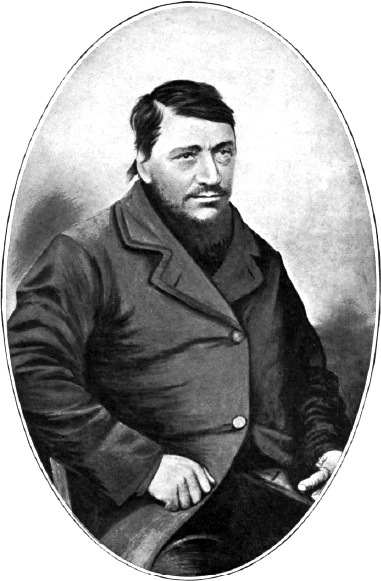
Paul Kruger c. 1865 (Source: Wiki)
A series of blunders committed by British statesmen resulted, in 1836, in an exodus of the more enterprising Boers from British territory. They moved north. President [Paul] Kruger, then a young lad, took part in this movement, generally known as the Great Trek. “It is not a pleasant admission for an Englishman to make,” says Mr. Theal, the English historian of South Africa, “but it is the truth, that it would be difficult to find in any part of the world a people with so much cause to be discontented as the old inhabitants of the Cape Colony for many years” preceding the Great Trek.
In the first place, the missionaries who were represented in London while the Boers were not, were intent upon the conversion of the Blacks, and in order to con vert them found it expedient to take their side in all their quarrels with the White population. This brought the missionaries into conflict with the Boers, for the Boer farmers and the Blacks were the only occupants of the up-country districts. The missionaries, supported by the Home Government, accused the Boers of cruelty and caused numbers of them to be arrested and tried. For months the whole colony was in commotion, hundreds of Boers who had not been arrested being subpoenaed as witnesses. The missionaries failed to prove their case. But the Boers were naturally disgusted with their treatment, for they had been put to great expense and had been grossly slandered, and there was no knowing when the same thing might not happen again, particularly as several missionaries had married Black women and had constituted themselves the champions of that race.
In the second place, the treatment of the Boers after the release of their slaves had certainly been unjust. Until 1833 slavery was still practiced in British Colonies. It was then decided to suppress it. Now in South Africa there were no White laborers. The Blacks supplied the labor. Consequently, the Boer farmers, like the English planters of the West Indies, found themselves face to face with ruin when they heard that they were to be deprived of the only form of labor available to them. But they were promised compensation, and submitted. When the time came they discovered that the compensation, which proved to be much smaller than they had been led to expect, was payable in London! This meant that in most cases the cost of collecting what was due to them would have been greater than the sum they might hope to obtain. They felt they had been cheated.
In the third place, as the Boers saw it, the British Government would neither protect them from the murderous incursions of the natives, nor allow them to protect themselves. In the fourth place, the citizens’ Senate was abolished, and the municipal and other functions that had been performed by the Senate were taken over by the Governor and his assistants. It was for these and for similar reasons that a large number of Boers decided to move beyond the sphere of British influence.
Trekking north, they arranged to purchase from Dingaan, the chief of the Zulus who lived in Natal, a large portion of his territory. When the time came for payment, Dingaan murdered their envoys, including Pieter Retief, their leader. The Boer emigrants then fought and defeated the Zulus and settled in Natal.
There they formed themselves into a Republic; founded the town of Pietermaritzburg, and—knowing that the British Government had proposed to leave them alone after they had trekked—concluded that their wanderings were over and that they would thereafter be allowed to live in peace. As soon, however, as it became known in Cape Town that they had occupied a harbor (Durban,) a frigate was sent north to clear them out and to claim Natal as British territory. This was the first time such a claim had been made, so the Boers naturally felt aggrieved. They learned, too, that while they had been fighting for their lives against the Zulus, the British authorities in Cape Town had done everything possible to cut off their supplies of ammunition.
Most of them decided to trek again. Some of them went to what afterward became the Orange Free State, where a few had gone in the first place; others crossed the Vaal River (Transvaal) to what afterward became the South African Republic. In their new homes they were alternately let alone and bullied, according to the character and policy of the Colonial Secretary who might happen to be in office. At last in 1852, the complete and unqualified independence of the Transvaal Boers was formally acknowledged in a treaty known as the Sand River Convention. In 1854 the complete and unqualified independence of the Orange Free State was also acknowledged.
Those who go to an extreme in their hostility to the Boers are apt to ignore the Sand River Convention and to begin their history of South Africa in 1881, when [Prime Minister] William Gladstone is said to have given the Transvaal its independence. This is done by at least one well-known writer on South African affairs, perhaps the most widely read of any, who, professing to write history, does not mention this Convention. No matter what our conclusions may be, let us be fair in arriving at them. No one can honestly overlook the fact that after much disputation and some fighting, the Orange Free State and Transvaal Boers were acknowledged as separate and independent peoples in 1852 and 1854. There was no suggestion of suzerain ty at that time.
For some years after this the Boers and the British were at peace. British policy continued to ebb and flow, at one time expansive, at another contractive; aggressive, and then pacific. But although this may have bewildered the Boers, whose one aim it was to be allowed to live their own lives in their own way, it did not bring them into armed conflict with Great Britain. In 1871, however, a conflict was narrowly avoided.
In 1870 diamonds had been discovered in the south western part of the Orange Free State, in the neighborhood of what is now the town of Kimberley. This territory was immediately claimed by Great Britain on behalf of a native chief. The Free State Boers were indignant, but decided that they were too weak to maintain their rights by force. So in November, 1871, the diamond fields were formally taken over by Great Britain. After this had been done, the chief’s claim, on the strength of which the territory had been seized, was submitted to the British Courts in Cape Town, and was found to be fictitious, with neither legal nor moral right to support it. The chief’s claim was promptly dismissed: but Great Britain retained the territory. Conscience money was paid subsequently to the extent of £90,000 (for property that not long afterward was turning out £4,000,000 worth of diamonds yearly) and was accepted by the Free State under protest.
The climax of this treatment was reached in 1877, when Sir Theophilus Shepstone, on behalf of Great Britain, annexed the Transvaal Republic in spite of the pro tests of its President and Government. The Sand River Convention had guaranteed, “in the fullest manner, on the part of the British Government, to the emigrant farmers beyond the Vaal River, the right to manage their own affairs, and to govern themselves without any interference on the part of Her Majesty the Queen’s Government, and that no encroachments shall be made by the said Government on the territory beyond to the north of the Vaal River.”
This Convention was violated on the pretext that the Boers were at the mercy of a native chief in the northeast, and that annexation was necessary in order “to rescue” them from the chief’s depredations. The fact is that when Shepstone reached Pretoria, this native chief had already sued for peace and had actually paid a fine imposed upon him by the Boers. It has been claimed that the Transvaal Boers were also “rescued” from the Zulus. The fact here is that the Zulu war did not occur for two years after the annexation of the Transvaal, and that even then it was begun, not by the Zulus, but by Sir Bartle Frere. It has been stated finally, in excuse for the annexation, that the Transvaal Government was practically non-existent and that there was no money in the treasury. But it has not been claimed that lack of money in the treasury reduced the country to anarchy or made its people any the less honest. “There was practically no crime,” we are told. No police because there was no need for them. It must have been hard on the lawyers: and it is said that the lawyers welcomed annexation!
The truth is, that the violation of the Sand River Convention by the annexation of the Transvaal was quite unwarrantable. It would have been so even if the pretexts for it had been justified by the facts; for had Great Britain been moved by humanitarian motives to rescue the Boers from their enemies, she could certainly have done so without annexing their country. As it was, the result was inevitable. The Boers protested; sent deputations to England; but to no effect. Then in 1880, when peaceful means had failed, they rose to recover their independence, of which, from their point of view, they had been robbed, and of which, in Mr. [Joseph] Chamberlain’s less crude phraseology, they had been deprived “involuntarily,” “under a misapprehension of the facts.”
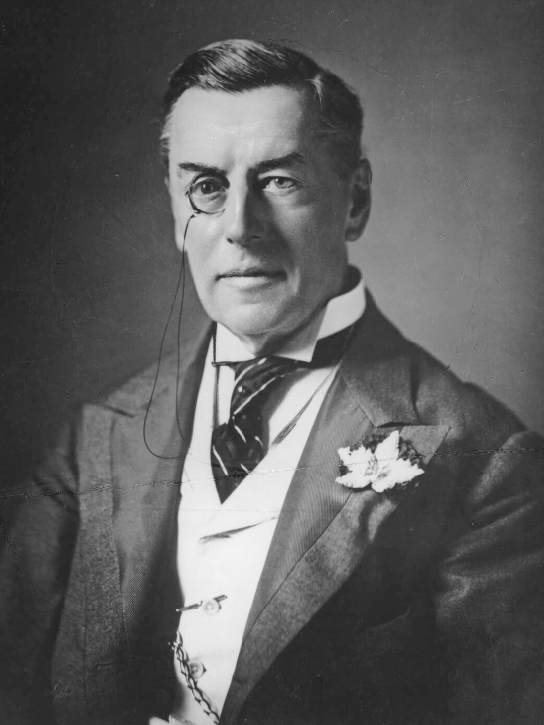
Joseph Chamberlain. (Source: Wiki)
In 1881, after several trivial engagements, including that of Majuba Hill, Mr. Gladstone and his colleagues came to the conclusion that they had been misled as to the feelings of the Boers; that the annexation had been a mistake, and that peace should be made. It was in 1896 that Mr. Chamberlain, speaking in the House of Commons as quoted above, explained the motives that had actuated the Ministry of which he had been a member. Chamberlain said:
We believed that the annexation of the Transvaal had been made involuntarily by this House under a misapprehension of the facts. The House was told when the annexation was made that the Boers were themselves in favor [of it.] It appeared afterwards that the House had been entirely misinformed, and, under these circumstances, the Government of the day came to the conclusion that the annexation ought to be annulled; and, having come to that conclusion, we did not think it was worthy of a great powerful nation to use its strength to shed further blood and to pursue the war after the object for which the war had been waged had been conceded.
The unanimity of the Boers in risking their lives for freedom might indeed have convinced any one that they really desired it. So on March 23, 1881, terms of peace were agreed to, and were confirmed on August 3, of the same year in what is known as the Pretoria Convention.
But the Boers were not satisfied. They received back only a portion of what they felt had been stolen from them. The independence which had been acknowledged as theirs in the “Convention of Peace” of 1852, and of which they had been deprived illegitimately in 1877, was not restored to them in 1881. Great Britain imposed “reservations and limitations” which left the Transvaal State in a position of galling dependency. A British Resident was to be appointed, with considerable local power, particularly over the natives; the right was retained to move troops through the State in certain circumstances; and its external relations were to be managed by British diplomatic and consular officers.
Mr. Gladstone was accused of injudicious magnanimity in having restored even the shred of self-government which the Convention allowed; but those who have de fended his policy best have retorted that his magnanimity was injudicious only in so far as it was hedged around with limitations and conditions which made his action, not an honorable and generous restitution of what was due, but a totally inadequate compensation, grudgingly paid, for an injury admittedly inflicted. Still, as the Boers recognized that if Britain persisted she could deprive them of what little they had, the Convention was accepted by the Volksraad under protest.
This Convention proved unworkable, and the Transvaalers, with the Convention of 1852—their flag of freedom—ever in mind, took steps to persuade the British Government to make full restoration of their rights. President Kruger and two other deputies were sent to London with that object in view. They did not wholly succeed, though the new Convention which they entered into, and signed at London on February 27, 1884, embodied a nearer approach to their original status than had been allowed in the Convention of 1881.
“A Convention between Her Majesty the Queen of the United Kingdom of Great Britain and Ireland, and the South African Republic,” is the title of the London compact. In its Preamble we read: It is hereby declared that the following articles of a new Convention be substituted for the articles embodied in the Convention of August 3, 1881.” As reference will have to be made later to the wording of this Convention, it need only be said now that on the day on which Lord Derby signed it, he cabled to the acting High Commissioner at the Cape as follows:
Convention signed today; the same complete independence in the Transvaal as in the Free State; conduct and control of diplomatic intercourse with foreign Governments conceded; Queen’s final approval of the treaties reserved; delegates appear well satisfied, and there is a cordial feeling between the two Governments.
It should be remembered that the Orange Free State admittedly was a sovereign international state. The new Convention still fell short of the Convention of 1852, in so far as the South African Republic, under Article IV of the new treaty, agreed to “conclude no treaty or engagement with any state or nation other than the Orange Free State […] until the same has been approved by Her Majesty the Queen.” In all other respects full restitution was made. Great Britain had a Consul in Pretoria, the South African Republic had a Consul in London, whose positions were recognized officially.

Cecil Rhodes. (Source: Wiki)
And now followed a period of peace. Old differences were overlooked. The Boers and the British in South Africa began to merge as one people. The rising generation of Boers spoke English as freely as Dutch. Intermarriages constantly took place. Mr. [Cecil] Rhodes, an Englishman became the leader of the Afrikander party in Cape Colony—a large proportion of his supporters being Colonial Boers. In 1890 he was made Premier. It was generally agreed that twenty years of peace and of non-interference by Downing Street might have united South Africa under the British flag.
But in 1886 gold had been discovered near Johannesburg, which had led to a large influx of foreigners into the Transvaal. For years they had worked harmoniously with the Boers. The gold-mining laws were admitted to be the most favorable in the world. President Kruger was thanked repeatedly by the mining community for favors he went out of his way to confer upon them. Unfortunately, the days of peace did not last for long.

Rhodesia. (Source: Wiki)
In 1889, Messrs. Rhodes and Beit had obtained from Lord Salisbury’s Government the grant of a charter which gave them possession of a vast tract of land, which they called Rhodesia situated to the north of the Transvaal The Boers had not forgotten the Sand River Convention of 1852, in which the British Government had declared that “no encroachments shall be made by the said Government on the territory beyond to the north of the Vaal River”—the southern boundary of the Transvaal. They believed, and the British Government had admitted, that that Convention had been violated illegitimately by the annexation of 1877. So, from their point of view, the appropriation of Rhodesia by the British seemed equally illegitimate. And when they heard, not long after this, some rather wild talk about “painting the map red” from the Cape to Cairo; about “hastening the process of consolidation,” artificially if necessary, it probably made them nervous. Small wonder! There has been wild talk in the United States, from time to time, about Canada, and how improving it would be for the Canadians to be made citizens of a United North America: all of which has probably stiffened the backs of the Canadians, making them more determined than they were before to keep aloof from the States.
In South Africa, however, wild talk was not the end of it. An effort was made to compel the Transvaal “to pool” the receipts from the Johannesburg traffic, fifty percent of which, at the expense of the Delagoa Bay and Port Durban traffic, was to go to the Colony of which Mr. Rhodes was Premier. In 1895, this led to the “Drifts” controversy, in the course of which Mr. Rhodes cabled to Mr. Chamberlain that Cape Colony would share in the expense of a war against the South African Republic. Other incidents occurred, of a more or less similar nature, the effect of which was to give rise to the suspicion that Mr. Rhodes was determined to pick a fighting quarrel with the Boer Government, and to force amalgamation at any price.
Mr. Rhodes had not always believed in making South Africa British. There was a time when many of those who are now his followers accused him of wishing to play the part of a South African George Washington. He had openly favored “the elimination of the Imperial factor.” His speeches had been full of suggestions such as this: “The Imperial factor which he warned the House last year against, had now been introduced into the country.” Ten years later his ideas had undergone a decided change, if one can judge him by his words and deeds.
Meanwhile more and more gold was being produced in the Transvaal. The immense value of the mines was assured. Deep borings had made it possible to estimate their yield for years to come. And as the output of the mines had increased, the world had begun to hear that the foreigners in the Transvaal had many grievances […]
The dispute over the “pooling” of the railway traffic had lasted, in one phase or another, throughout the years 1894 and 1895. The incident closed without war; but it soon became evident that powerful influences were at work to provoke a crisis. Johannesburg, the center of the foreign (Uitlander) population in the Transvaal, showed increasing dissatisfaction with the Boer Government. Every day produced new grievances. Mr. Rhodes, who was still the Premier of Cape Colony, and whose financial interest in the Johannesburg mines was enormous, helped the agitation, as he afterward admitted, by every means in his power.

The Jameson Raid. (Source: Wiki)
The result was the Jameson Raid, the object of which was to obtain possession of the country from the Boers, and then to make it, as some wished, an independent Republic under Uitlander control, or, as others wished, to make it British property.

Leander Starr Jameson. (Source: Wiki)
A letter was written by leading Johannesburgers, and left undated, stating that their women and children were in danger, and appealing to Dr. [Leander Starr] Jameson (who was stationed on the border of the Transvaal, in command of the Rhodesian Mounted Police) to come at once to their rescue. This letter was to have been used in the English newspapers in justification of Dr. Jameson’s action, at such time as it might be convenient to undertake the work of rescue. As everyone knows, Dr. Jameson led his men into the Transvaal, was defeated, captured, and with his fellow prisoners was sent to England for trial.
As the Transvaal Government would have been within its rights in executing the Raiders, considerable anxiety as to their fate was felt in England. Mr. Chamberlain, as Secretary of State for the Colonies, wrote: “President Kruger’s magnanimity, if he were to hand over the prisoners, would be very highly appreciated by me.” When President Kruger had done so, Mr. Chamberlain wrote to him personally saying, “I myself have always felt confidence in your magnanimity, and your Honor may rest confident that I will strictly uphold all the obligations of the London Convention of 1884.”
The Raiders were tried in England in the summer of 1896. “They were tried,” in the words of the Lord Chief Justice, “for making a war from within the Queen’s dominions upon the dominions of a friendly State.” Concerning Mr. Rhodes’ share in the matter, the Select Committee of Inquiry appointed by the British Parliament reported that: “Whatever justification there might have been for action on the part of the people in Johannesburg, there was none for a person in Mr. Rhodes’ position in subsidizing organizing and stimulating an armed insurrection.” Mr. Rhodes soon afterward declared that he would thenceforth use “constitutional methods” to obtain his ends.
No one seriously defends the Raid, however, so no more need now be said about it. One thing may be said in its favor: that apart from the undated letter stating that women and children were in danger, it is free from hypocritical coloring. It was an undisguised attempt at robbery on a big scale, and one prefers the man who says, “I propose to take your land because I want it,” to the man who says, “I propose to take your land because it will be good for you!”
After the Raid, Mr. Chamberlain made some very important speeches, which, though often quoted, must again be cited, as their bearing upon subsequent occurrences is vital. This was in 1896, at a time when the grievances of the Uitlanders had been fully ventilated […]
There were excitable people who had been infuriated by the failure of the Raid. It became for them a second Majuba, to be avenged. Mr. Chamberlain was called upon to enforce immediately every reform that was demanded by the Uitlanders. Replying to one of these gentlemen in the House of Commons on April 12, 1896, he said:
What would be the policy of the honor able member for Sheffield as Colonial Secretary? We know what it would be. He would send, in the first place, an ultimatum to President Kruger that unless the reforms which he was specifying were granted by a particular date, the British Government would interfere by force. Then I suppose he would come here and ask this House for a vote of £10,000,000 or £20,000,000—it does not matter particularly which (laughter)—and would send an army of 10,000 men, at the very least, to force President Kruger to grant reforms in a State in regard to which not only this Government but successive Secretaries of State have pledged themselves repeatedly that they would have nothing to do with its internal affairs. That is the policy of the honorable gentleman. That is not my policy. My policy has been to restore the good feeling which was beginning to be created between the Dutch and the British population.
On another occasion (February 13, 1896) he said: “The rights of our action under the Convention are limited to the offering of friendly counsel, in the rejection of which, if it is not accepted, we must be quite willing to acquiesce.” And then, “The question is, whether President Kruger will consider that that proposal will endanger the security of the Transvaal Government. If he does, he will be perfectly justified in rejecting it.”
Finally, on May 8, 1896, Mr. Chamberlain said:
In some quarters the idea is put forward that the Government ought to have issued an ultimatum to President Kruger, an ultimatum which would have certainly been rejected, and which must have led to war. Sir, I do not propose to discuss such a contingency as that. A war in South Africa would be one of the most serious wars that could possibly be waged. It would be in the nature of a civil war, it would be a long war, a bitter war, and a costly war, and, as I have pointed out already, it would leave behind it the embers of a strife which I believe generations would hardly be long enough to extinguish. To go to war with President Kruger, in order to force upon him reforms in the internal affairs of his State, in which Secretaries of State, standing in this place, have repudiated all right of interference—that would be a course of action as immoral as it would have been unwise.
Mr. Chamberlain said these things, presumably meant them, and, for a time, apparently acted in accordance with them. Unfortunately, the Transvaal Government could not trust him. At the British Parliamentary Inquiry into the Raid, it was revealed that Miss Flora Shaw, who was a London Times correspondent and a friend of Mr. Rhodes’, had paid frequent visits to the Colonial Office during the weeks preceding the Raid, and had cabled to Mr. Rhodes on December 17, 1895, as follows: “Chamberlain sound in case of interference of European powers, but have special reason to believe wishes you must do it immediately.” Then, after the Raid, a letter was found, written by Mr. Lionel Phillips, chairman of the Johannesburg Chamber of Mines, to Mr. Wernher of Messrs. Wernher & Beit. It was dated July 1, 1894. Sir Henry Loch, referred to in it, was at that time the High Commissioner for South Africa, and was, in that capacity, acting as Mr. Chamberlain’s agent:
Sir H. Loch (with whom I had two long private interviews alone,)” wrote Mr. Phillips, “asked me some very pointed questions such as what arms we had in Johannesburg, whether the population could hold the for six days until help could arrive, etc., etc., and plainly that if there had been 3,000 rifles and ammunition here he would certainly have come over. He informed me, in a significant way, that he had prolonged the Swaziland agreement for six months, and said he supposed in that time Johannesburg would be better prepared—as much as to say if things are safer then shall actively intervene.
This and other evidence convinced the Boers that Mr. Chamberlain had been privy to what Mr. Rhodes and the leading Johannesburgers had planned. So the Boers began to arm in fear of another Raid, a “constitutional” Raid, on a bigger scale. They had been driven some months before, by the threatening attitude of the Uitlanders, to contemplate defensive preparations. Now they realized that action was necessary. They built a fort overlooking Johannesburg, and other forts around Pretoria. Meanwhile, more than ever was said in England, and by Mr. Rhodes’ followers in Cape Colony, about “painting the map red.”
In 1898, Mr. Rhodes’ “all red” party in the Cape Parliament was defeated, and Mr. [William] Schreiner became Prime Minister, as the official head of the Afrikanders in the Colony. A Redistribution Bill had been carried by Mr. Rhodes, the effect of which was unexpected, for it gave the Afrikander party what promised to be a permanent majority in Cape Colony.
No one questioned the loyalty of the Afrikanders at this time. One of the first acts of the Schreiner Ministry was to vote a voluntary subsidy toward the maintenance of the British fleet. A very large number of Afrikander were and are British in origin. They are men and women who have made South Africa their home, in contradistinction to those who still look upon England as home; they believe that the internal affairs of South Africa can best be governed by South Africans.[1]
~
[Tensions soon escalated, however, and on October 9, 1899, the Boers issued an ultimatum giving the British 48 hours to withdraw her soldiers from Boer territory, and for any forces en route for South Africa to return to Britain. On October 12, 1899, Transvaal and the Orange Free State declared war on Great Britain.]
HARGROVE
I. “Refined English Atmosphere.”
II. “The Purple Mother.”
III. “Kitty Tingley, Despot.”
IV. “Villa Maria.”
V. “Dr. Leyds And The Occultation Of World Politics.”
VI. “The South African Situation.”
VII. “The Conciliator Of South Africa.”
VIII. “Transvaal Vs. Churchill.”
IX. “The Séances Of Thomas Welton Stanford.”
X. “The White Stag.”
XI. “The Hair Line Of Duty.”
SOURCES:
[1] T. An American View Of The South African Situation: How Australasia Might Help Great Britain. New York, New York (1901): 5-17.


